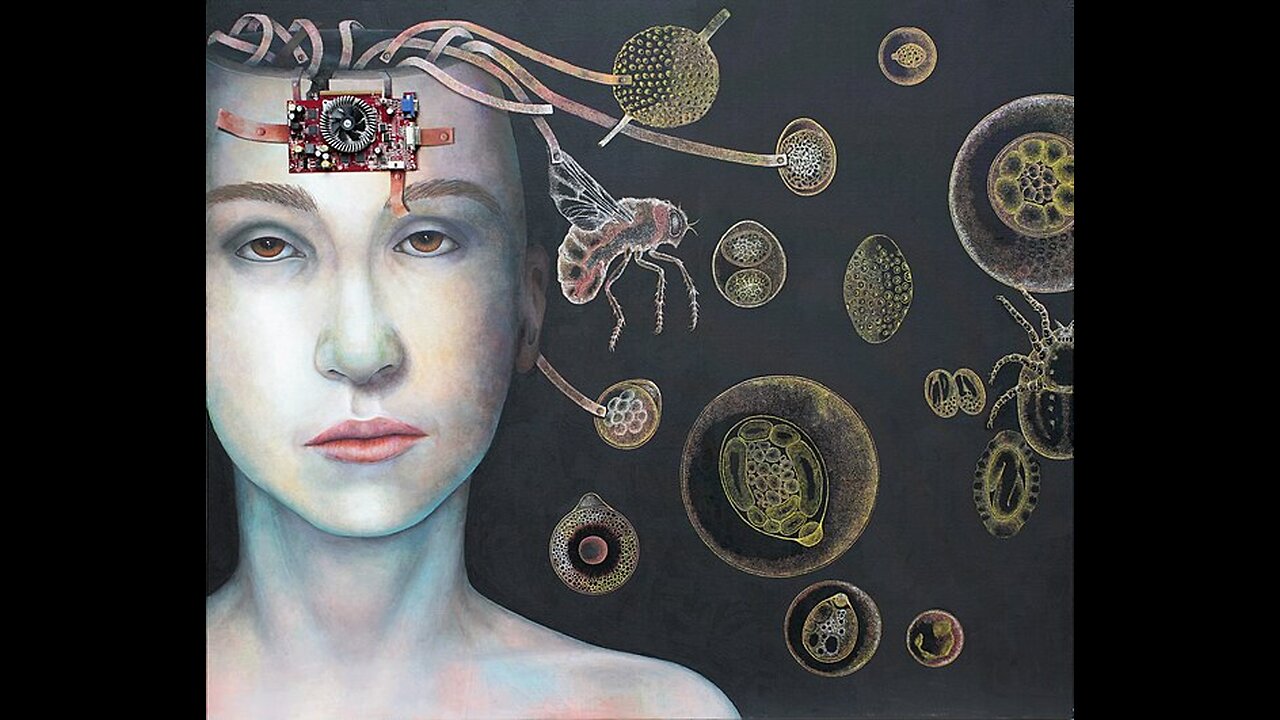Premium Only Content

🪱 Parasitic Infections 🏥 Indeed Alter 😡 Mood
Yes, parasitic infections can indeed alter mood. Parasites can affect the central nervous system or disrupt neurochemical communication, leading to changes in behavior and potentially mood disorders. The Conversation highlights how gut microbes can even affect neurotransmitter production, influencing anxiety-like behaviors and other nerve-related functions.
Here's a more detailed look:
Toxoplasma gondii (T. gondii):
This common parasite, spread by cats, has been linked to personality changes, mood disorders, and even psychiatric disorders like schizophrenia and bipolar disorder. Scientific American suggests that T. gondii might manipulate our behavior, potentially leading to risky choices or even an increased attraction to cats.
Other Parasites:
Besides T. gondii, other parasitic infections like echinococcosis, schistosomiasis, and coenurosis can also cause symptoms like seizures, headaches, personality changes, and mental impairment.
How Parasites Affect Mood:
Parasites can alter mood through several mechanisms:
Infection of the Central Nervous System: Some parasites directly invade the brain, causing inflammation and affecting neurotransmitter balance.
Disruption of Neurochemical Communication: Parasites can interfere with the production or function of neurotransmitters like dopamine, serotonin, and glutamate, which play a crucial role in mood regulation.
Immune System Response: The immune system's response to parasitic infection can release inflammatory cytokines that can also affect mood.
Examples of Mood Changes:
Research has linked parasitic infections to various mood changes, including:
Depression and Anxiety: The Conversation and Wiley Online Library have demonstrated links between T. gondii infection and higher rates of anxiety and depression.
Aggression and Rage: Some studies suggest that T. gondii may be associated with increased aggression and intermittent explosive disorder.
Personality Changes: T. gondii has been linked to personality changes, including decreased conscientiousness and an increased risk of engaging in risky behaviors.
-
 1:06:41
1:06:41
MattMorseTV
5 hours ago $0.16 earned🔴Trump PREPARES for WAR with VENEZUELA.🔴
36.2K61 -
 39:59
39:59
Clownfish TV
9 hours agoHollywood NO MORE! Animation Industry Will DIE First?! | Clownfish TV
8.16K2 -
 25:57
25:57
The Kevin Trudeau Show Limitless
2 days agoThe Sound Of Control: This Is How They Program You
61.2K19 -
 47:41
47:41
Sarah Westall
4 hours agoNew Actions by Insiders Never Seen in History – Bitcoin Moves Ahead w/ Andy Schectman
18.3K2 -
 1:08:26
1:08:26
Glenn Greenwald
6 hours agoGlenn Takes Your Questions on Bill Ackman's Meddling in the NYC Election, Dems' Refusal to Endorse Zohran; MAGA Abandoning "America First," and More | SYSTEM UPDATE #537
108K30 -
 3:48:54
3:48:54
Nerdrotic
10 hours ago $0.24 earnedStar Wars is DEAD! | Is Hollywood Killing Pop Culture | WB for sale - Friday Night Tights 377
91.8K7 -
 LIVE
LIVE
SynthTrax & DJ Cheezus Livestreams
1 day agoFriday Night Synthwave 80s 90s Electronica and more DJ MIX Livestream Electronic Favorites Edition
144 watching -
 39:10
39:10
BonginoReport
13 hours agoPro-Life Journo Attacked In Lawless NYC - Nightly Scroll w/ Hayley Caronia (Ep.163)
94.6K28 -
 2:53:01
2:53:01
Nikko Ortiz
5 hours agoNew Army Machine Gun In Insurgency Sandstorm... |Rumble Live
17.8K1 -
 5:01:07
5:01:07
ZWOGs
6 hours ago🔴LIVE IN 1440p! - TOURNAMENT DAY! The Brrrap Pack & Myself vs Sparksforce! - Come Hang Out!
5.68K